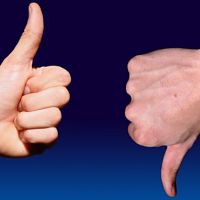Testosterone causes both prosocial and antisocial status-enhancing behaviors in human males. (2016)

“These findings (don’t support) a simple testosterone-aggression relationship and (suggest) a more complex role in driving status-enhancing behaviors in males.”
Jean-Claude Dreher (a,b,c,1,2); Simon Dunne (a,d,1,2); Agnieszka Pazderska (e); Thomas Frodl (a,f,g); John J. Nolan (e,h); and John P. O’Doherty (a,d,i).
Proceedings of the National Academy of Sciences, 113(41), 11633-11638.
Abstract:
“Although popular discussion of testosterone’s influence on males often centers on aggression and antisocial behavior, contemporary theorists have proposed that it instead enhances behaviors involved in obtaining and maintaining a high social status.
“Two central distinguishing but untested predictions of this theory are that testosterone selectively increases status-relevant aggressive behaviors, such as responses to provocation, but that it also promotes nonaggressive behaviors, such as generosity toward others, when they are appropriate for increasing status.
“Here, we tested these hypotheses in healthy young males by injecting testosterone enanthate or a placebo in a double-blind, between-subjects, randomized design (n = 40). Participants played a version of the Ultimatum Game that was modified so that, having accepted or rejected an offer from the proposer, participants then had the opportunity to punish or reward the proposer at a proportionate cost to themselves.
“We found that participants treated with testosterone were more likely to punish the proposer and that higher testosterone levels were specifically associated with increased punishment of proposers who made unfair offers, indicating that testosterone indeed potentiates aggressive responses to provocation.
“Furthermore, when participants administered testosterone received large offers, they were more likely to reward the proposer and also chose rewards of greater magnitude. This increased generosity in the absence of provocation indicates that testosterone can also cause prosocial behaviors that are appropriate for increasing status.
“These findings are inconsistent with a simple relationship between testosterone and aggression and provide causal evidence for a more complex role for testosterone in driving status-enhancing behaviors in males.”
Access the full paper here: Testosterone causes both prosocial and antisocial status-enhancing behaviors in human males.
Author affiliations:
a – Trinity College Institute of Neuroscience, Dublin
b – Institut des Sciences Cognitives Marc Jeannerod, Bron, France
c – Université Lyon. France
d – Computation and Neural Systems, California Institute of Technology
e – St. James’s Hospital, Dublin
f – Otto von Guericke University of Magdeburg, Germany
g – Department of Psychiatry, Trinity College, Dublin
h – Steno Diabetes Center, Gentofte, Denmark
i – Division of the Humanities and Social Sciences, California Institute of Technology






Leave a comment
Back to the top